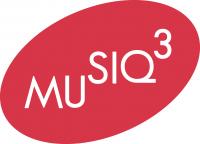
Brussels Choral Society - Beethoven – Missa Solemnis
Past event
Cancelled
Postponed
29 Apr.'17
- 20:00
Guildford Choral Society – Ensemble Orchestral de Bruxelles
Brussels Choral Society
Guildford Choral Society
Ensemble Orchestral de Bruxelles
Agnieszka Sławińska – Soprano
Inez Carsauw – Mezzo-soprano
Markus Brutscher – Tenor
Norman D. Patzke – Bass-baritone
Conductor: Eric Delson
The Brussels Choral Society, the largest amateur symphony choir in Belgium, will be renewing its collaboration with the Guildford Choral Society, an outstanding chorus from the UK. The choir, the four soloists and the Ensemble Orchestral de Bruxelles will be conducted by the BCS’ Music Director, Eric Delson.
Beethoven started work on his Missa Solemnis in 1819. He had wanted to compose a mass as a gift to his friend the Archduke Rudolf of Austria for his enthronement as Archbishop of Olmütz but Beethoven never met the deadline; not because of other work, but owing to a growing obsession with the task as he studied the compositions of Handel and Mozart, and earlier Renaissance masters. During the agonising four years it took to complete the mass, Anton Schindler, Beethoven’s assistant and biographer, recounts how he saw his profoundly deaf master stamping and screaming, ‘his features distorted to the point of inspiring terror’ whilst he was composing the fugue from the Credo. The completed mass finally reached the Archbishop in 1824, some three years after his enthronement, with the message: ‘From the heart, may it return to the heart.’
The mass is a work of monumental power, arguably Beethoven’s finest composition. It is a religious drama lasting nearly 90 minutes, in which belief in the divine and earthly doubt battle for supremacy. Second only in length to his opera Fidelio, the work makes full use of the musical resources available to him. A large orchestra, four soloists and a substantial chorus are challenged ‘beyond the heroic’, to dramatically respond to the words that lay bare the relationship between God and the supplicant humanity on earth. Beethoven’s obsession was to adequately express his complex attitude towards religion through the text; he is overwhelmed by a sense of a divine creator. The eminent musicologist Donald Tovey describes the Gloria and Credo settings as ‘having an all but apocalyptic vehemence, sung in a merciless fortissimo, supported by massive forces and drastic harmonies’.
Since its first performance in St Petersburg in 1824, the Missa Solemnis has divided listeners’ opinions. Some find it utterly sublime; for others, it is an ordeal. Many interpreters have struggled to find a meaning and touch the mystery of what is often an eccentric work. Its many changes in mood combine to push us towards feelings of spiritual awareness; few other works of music do this so effectively. The soaring violin solo in the Benedictus, apparently pointing the way to heaven, paints an extraordinarily vivid picture of the divine. The last movement, Agnus Dei, a prayer for peace, contains the greatest surprise of all when it is suddenly invaded by military fanfares. How can we expect a true peace when the reverberations of warfare are all around us? And if that was true in the aftermath of the Napoleonic wars, its relevance is no less true today.
Practical information
Dates
Location
Henry Le Boeuf Hall
Rue Ravenstein 23 1000 BRUSSELS€10 < 26 years
If you want to belong to our BCS FRIENDS, you can sign up here to the Brussels Choral Society Newsletter and get reductions for our concerts. Subscribers can unsubscribe at any time.
Production
Partners

